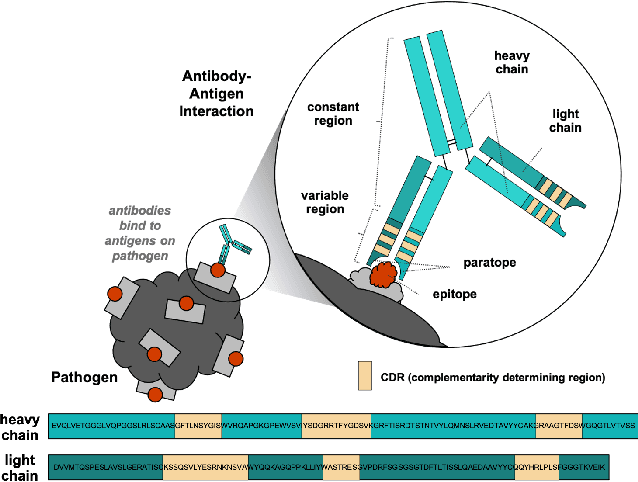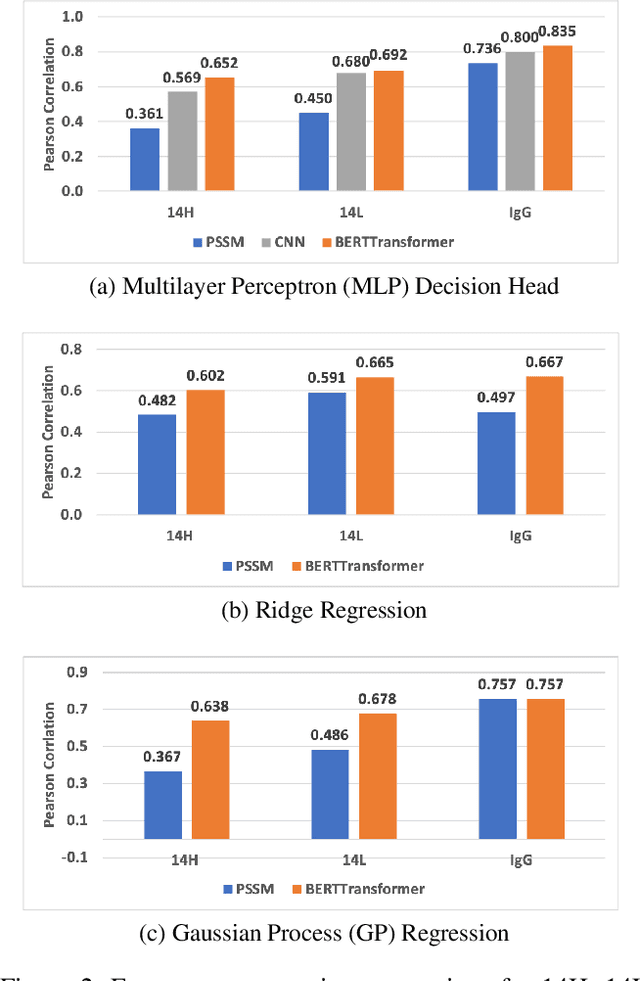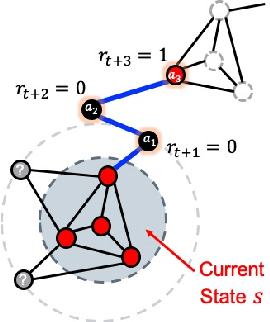Rajmonda Sulo Caceres
Antibody Representation Learning for Drug Discovery
Oct 05, 2022



Abstract:Therapeutic antibody development has become an increasingly popular approach for drug development. To date, antibody therapeutics are largely developed using large scale experimental screens of antibody libraries containing hundreds of millions of antibody sequences. The high cost and difficulty of developing therapeutic antibodies create a pressing need for computational methods to predict antibody properties and create bespoke designs. However, the relationship between antibody sequence and activity is a complex physical process and traditional iterative design approaches rely on large scale assays and random mutagenesis. Deep learning methods have emerged as a promising way to learn antibody property predictors, but predicting antibody properties and target-specific activities depends critically on the choice of antibody representations and data linking sequences to properties is often limited. Existing works have not yet investigated the value, limitations and opportunities of these methods in application to antibody-based drug discovery. In this paper, we present results on a novel SARS-CoV-2 antibody binding dataset and an additional benchmark dataset. We compare three classes of models: conventional statistical sequence models, supervised learning on each dataset independently, and fine-tuning an antibody specific pre-trained language model. Experimental results suggest that self-supervised pretraining of feature representation consistently offers significant improvement in over previous approaches. We also investigate the impact of data size on the model performance, and discuss challenges and opportunities that the machine learning community can address to advance in silico engineering and design of therapeutic antibodies.
Deep Reinforcement Learning for Task-driven Discovery of Incomplete Networks
Sep 16, 2019



Abstract:Complex networks are often either too large for full exploration, partially accessible or partially observed. Downstream learning tasks on incomplete networks can produce low quality results. In addition, reducing the incompleteness of the network can be costly and nontrivial. As a result, network discovery algorithms optimized for specific downstream learning tasks and given resource collection constraints are of great interest. In this paper we formulate the task-specific network discovery problem in an incomplete network setting as a sequential decision making problem. Our downstream task is vertex classification.We propose a framework, called Network Actor Critic (NAC), which learns concepts of policy and reward in an offline setting via a deep reinforcement learning algorithm. A quantitative study is presented on several synthetic and real benchmarks. We show that offline models of reward and network discovery policies lead to significantly improved performance when compared to competitive online discovery algorithms.
 Add to Chrome
Add to Chrome Add to Firefox
Add to Firefox Add to Edge
Add to Edge